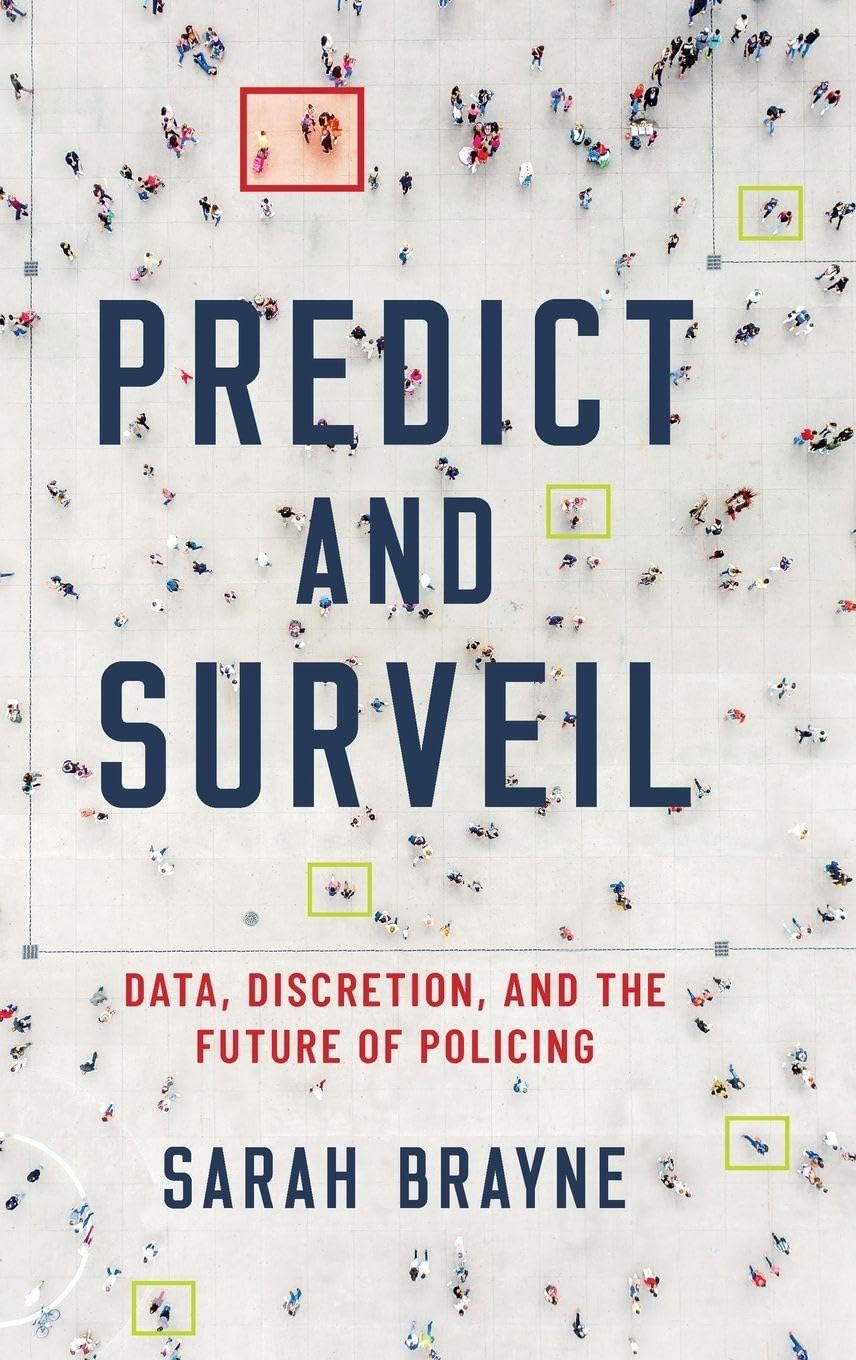Sarah Brayne (2020) Predict and Surveil: Data, Discretion, and the Future of Policing, Oxford University Press
https://www.amazon.com/Predict-Surveil-Discretion-Future-Pol...
Based on field work conducted with officers and IT personnel in the Los Angeles Police Department, the author convincingly shows that law enforcement generally follow an "institutional data imperative," i.e., a mandate to collect as much information as possible, in part by securing routine access to a wide range of data on everyday activities from non-police databases. Data originally collected for one purpose is used for another (p. 53).
Sarah Brayne (2020) "Predict and Surveil: Data, Discretion, and the Future of Policing," Oxford University Press
https://www.amazon.com/Predict-Surveil-Discretion-Future-Pol...


Sarah Brayne (2020) Predict and Surveil: Data, Discretion, and the Future of Policing, Oxford University Press
https://www.amazon.com/Predict-Surveil-Discretion-Future-Pol...
According to the book, Palantir is one of the largest companies specializing in surveillance data management services for clients in the U.S. military, law enforcement and other corporations. Palantir does not own its data but rather provides an interface that runs on top of other data systems, including legacy systems, making it possible to link data points across separate systems. Palantir gathers its data primarily from "data brokerage firms," including LexisNexis, Thomson Reuters CLEAR, Acxiom, CoreLogic, Cambridge Analytica, Datalogix, Epsilon, Accurint. As Brayne observes, these data brokerage firms "collect and aggregate information from public records and private sources, e.g., drivers licenses, mortgages, social media, retail loyalty card purchases, professional credentials, charities’ donor lists, bankruptcies, payday lenders, warranty registrations, wireless access points at hotels and retailers, phone service providers, Google searches and maps geolocation, and other sources who sell your data to customers willing to pay for it. Yet it is difficult to fully understand the scope of the data brokerage industry: even the FTC cannot find out exactly where the data brokers get their information because brokerages cite trade secrecy as an excuse to not divulge their sources" (pp. 24-5, 41-2).
Why is this a concern for people living in a democratic society with a supposedly strong legal system that protects individual freedoms? "Big data companies argue that their proprietary algorithms and data are trade secrets, and therefore they refuse to disclose their data, code and techniques with criminal defense attorneys or the public" (p. 135). This means that, "In many cases it is simply easier for law enforcement to purchase data from private firms than to rely on in-house data because there are fewer constitutional protections, reporting requirements and appellate checks on private sector surveillance and data collection, which enables police to circumvent privacy laws" (pp. 24-5).